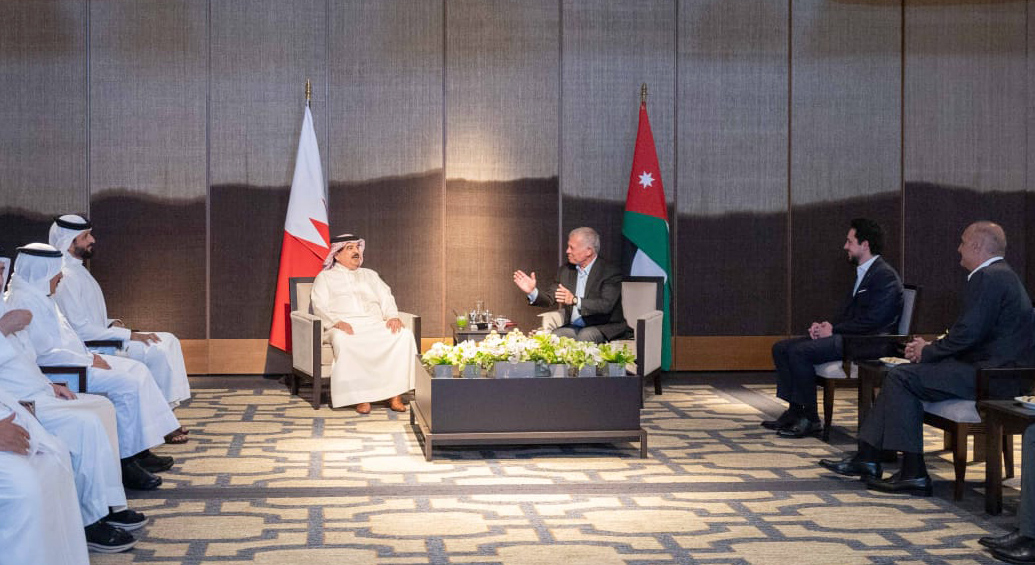LOC19:11
16:11 GMT
 Jordanian King Abdullah II and Bahrain King Hamad bin Isa
Jordanian King Abdullah II and Bahrain King Hamad bin Isa
AMMAN, April 17 (KUNA) -- Jordanian King Abdullah II and Bahrain King Hamad bin Isa Wednesday stressed the importance of reducing tension in Middle East, avoiding military escalation, finding comprehensive and sustainable peaceful solutions to regional conflicts and coordinating efforts to combat terrorism and prevent its funding.
This came during a discussion session held in the Jordanian city of Aqaba at the beginning of a one-day official visit by King of Bahrain, said the Royal Hashemite Court in a statement.
The two sides emphasized the importance of the upcoming Arab summit scheduled to be held in Bahrain, considering the current circumstances in the region, calling for the necessity of maintaining Arab coordination to enhance solidarity and support joint Arab action.
The King of Bahrain commended Jordan's active role to achieve peace and support Arab and Islamic causes, most notably the Palestinian cause, and underlined the importance of the Hashemite custodianship over the Islamic and Christian holy sites in Jerusalem.
The two sides highlighted the urgent need for the international community, especially the UN Security Council, to implement decisions to immediately cease fire in Gaza, protect civilians, ensure the delivery of humanitarian aid by all possible means, and prevent further escalation.
Furthermore, they expressed their rejection of anything that would lead to an expansion of the war, ground attacks on the city of Rafah, or the displacement of Palestinians from their lands.
The two kings reiterated the need to respect the historical and legal status in the city of Jerusalem and to stop the Israeli occupation's violations of the holy places in it, added the statement.
They warned of the hostile actions carried out by extremist settlers against Palestinians in the West Bank, condemning the construction of settlements in the occupied Palestinian territories as a violation of international law.
They noted the need to unify Arab and international efforts to achieve comprehensive peace in the region and support Palestinians' right to self-determination and the establishment of their independent state on the lines of June 4, 1967, with East Jerusalem as its capital, in accordance with international legitimacy resolutions. (end)
omn.seo